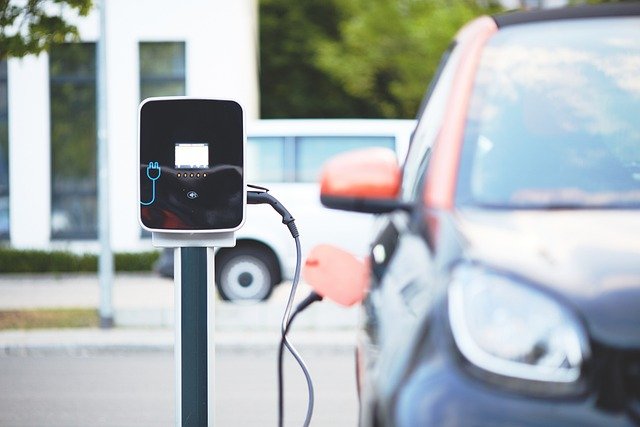The Electric Car Revolution: What You Need to Know
Electric cars are transforming the automotive landscape, offering a cleaner and more sustainable alternative to traditional petrol and diesel vehicles. As the world grapples with climate change and air pollution, electric vehicles (EVs) have emerged as a promising solution to reduce carbon emissions and dependency on fossil fuels. This article delves into the world of electric cars, exploring their benefits, challenges, and the future of transportation in the United Kingdom and beyond.

What exactly are electric cars and how do they work?
Electric cars, also known as electric vehicles or EVs, are automobiles powered by one or more electric motors using energy stored in rechargeable batteries. Unlike conventional internal combustion engine vehicles, EVs don’t rely on petrol or diesel for propulsion. Instead, they use electricity stored in their battery packs to power the electric motor, which in turn drives the wheels. This fundamental difference in powertrain technology results in zero direct emissions from the vehicle during operation, making EVs a cleaner alternative for personal transportation.
What are the main benefits of switching to an electric car?
The advantages of electric cars are numerous and compelling. Firstly, EVs produce zero tailpipe emissions, significantly reducing air pollution in urban areas and helping to combat climate change. They are also more energy-efficient than traditional vehicles, converting a higher percentage of energy into motion. Electric cars offer lower running costs, as electricity is generally cheaper than petrol or diesel. Additionally, EVs require less maintenance due to their simpler powertrains with fewer moving parts. Many drivers also appreciate the quiet and smooth driving experience that electric cars provide, along with their instant torque and responsive acceleration.
What are the current challenges facing electric car adoption?
Despite their benefits, electric cars face several challenges that can hinder widespread adoption. One of the primary concerns is range anxiety – the fear of running out of battery power before reaching a charging station. While EV ranges have improved significantly, some drivers still worry about long-distance travel. Another challenge is the charging infrastructure, which, although expanding rapidly, is not yet as ubiquitous as petrol stations. The upfront cost of electric cars can also be higher than comparable petrol or diesel models, although this gap is narrowing. Additionally, the production of EV batteries raises environmental and ethical concerns related to raw material extraction and manufacturing processes.
How is the UK government supporting the transition to electric cars?
The United Kingdom has set ambitious goals to phase out the sale of new petrol and diesel cars by 2030, with hybrid vehicles following suit by 2035. To support this transition, the government has implemented various incentives and policies. These include grants for purchasing electric vehicles, tax benefits for EV owners, and investments in charging infrastructure. The UK is also supporting the development of battery technology and encouraging the growth of a domestic EV manufacturing industry. Local authorities are introducing clean air zones and low emission areas in cities, further incentivising the switch to electric vehicles.
What advancements are being made in electric car technology?
The electric car industry is experiencing rapid technological advancements. Battery technology is improving, with new chemistries and designs offering higher energy density, faster charging times, and longer lifespans. Solid-state batteries, for instance, promise even greater range and safety. Charging infrastructure is also evolving, with ultra-fast chargers capable of adding hundreds of miles of range in just minutes. Vehicle-to-grid (V2G) technology is being developed, allowing EVs to act as mobile power banks, potentially stabilising the electrical grid during peak demand. Furthermore, autonomous driving capabilities are being integrated into many electric vehicles, paving the way for a future of self-driving electric cars.
How do the costs of electric cars compare to traditional vehicles?
When considering the switch to an electric car, understanding the cost implications is crucial. While the initial purchase price of an EV is often higher than that of a comparable petrol or diesel vehicle, the total cost of ownership over time can be lower due to reduced fuel and maintenance costs. Here’s a comparison of some popular electric cars and their petrol counterparts in the UK market:
| Vehicle Model | Type | Starting Price | Estimated Annual Running Cost |
|---|---|---|---|
| Nissan Leaf | Electric | £28,995 | £480 |
| Volkswagen ID.3 | Electric | £32,200 | £520 |
| Tesla Model 3 | Electric | £42,990 | £550 |
| Ford Focus | Petrol | £22,215 | £1,320 |
| Volkswagen Golf | Petrol | £23,360 | £1,400 |
| BMW 3 Series | Petrol | £33,250 | £1,680 |
Prices, rates, or cost estimates mentioned in this article are based on the latest available information but may change over time. Independent research is advised before making financial decisions.
While electric cars generally have a higher upfront cost, they benefit from lower fuel costs (electricity vs petrol) and reduced maintenance expenses. The UK government offers incentives such as the Plug-in Car Grant, which can provide up to £2,500 off the purchase price of eligible electric vehicles. Additionally, electric car owners enjoy lower road tax rates and exemption from congestion charges in many cities. Over time, these savings can offset the higher initial investment, making electric cars an increasingly cost-effective option for many drivers.
As the electric car revolution gains momentum, it’s clear that EVs are set to play a crucial role in the future of transportation. With ongoing technological advancements, expanding charging infrastructure, and supportive government policies, electric cars are becoming an increasingly attractive option for UK consumers. While challenges remain, the benefits of reduced emissions, lower running costs, and improved driving experiences are driving the shift towards a cleaner, more sustainable automotive future.
The shared information of this article is up-to-date as of the publishing date. For more up-to-date information, please conduct your own research.




